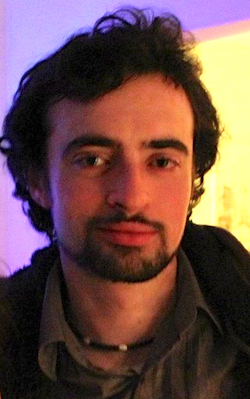
This is how I begin every guest lecture I give to high school students.
“Show of hands … no one? Maybe you, a little bit? Okay, cool.”
And this is how I continue every guest lecture I give to high school students, and this is a problem. Environmental understanding is not a part of what we consider a traditional education. It often finds itself on the outskirts of customary courses, such as geography, biology and some parts of philosophy. But the time to simply pay lip service to the environmental education is over, and not for the reason you think.
Yes the numbers are scary, and yes fighting climate change should be first on everyone’s to-do list, but from a personal development standpoint, just learning about the issues is not very useful. The skills that environmental education teaches however, will serve you the rest of your life.
This is because environmental education brings to the forefront a skill that is largely ignored by traditional schooling: the ability to perceive and understand how things are connected, in both our daily life and the disciplines being taught. We learn the “hard sciences” completely separate from the philosophers and the philosophies that paved the way for all of their discoveries. Then we turn around and study historical and geological events without adequate understanding of these sciences to properly see what is going on and why it is important.
Environmental issues cannot be taught in this manner. A full and proper understanding of climate change (what it is, why it is happening, what to expect from it, and why were are failing to curb warming) requires information from physicists, biologists, chemists, economists, political scientists, psychologists, historians, philosophers, and mathematicians. A good environmental education teaches you how to make these connections, and this is a skill that is desperately needed in today’s world.
We who live in the privileged “developed” nations have been increasingly isolated from the realities of the world around us. How many people who have shopped at Joe Fresh feel responsible for the loss of lives in the factory collapse (link)? How many people look down on nations who are struggling with internal conflict and political corruption all while buying the diamonds, cobalt, and oil that fuels these problems? How many people have lamented climate change over a burger and coke? Yours truly is likely guilty of this last one, even though beef and corn production are massive CO2 emitters*. Understanding these connections empowers people to impact the world around us. These are the realities of the world we live in and to let students walk out high school without being able to see this is a travesty.
High school is our society’s last chance to directly build its citizens and we should start to consider it that way. A society that understands the basic workings of our world, how we are connected to it, and how it can influence us is a society that is stronger, more adaptable, and better suited to make decisions than one that does not. This much seems clear, and an environmental education can provide such skills to our society, if we commit to it.
Note: None of this should be taken as me disparaging high school teachers, or teachers in general, I understand that teaching all the required material in the time allotted can be difficult enough. Rather, I am advocating that environmental education be added to the curriculum in a real way.
*The reason I mention corn, is due to the fact that a vast majority of sweeteners used in today’s soft drinks is high fructose corn syrup (HFCS) which as the name implies comes directly from corn.

